At-home cold sore relief is possible
Cold sores are irritating red blisters that typically form on the face, usually around the mouth. They can be painful and not so pretty to look at. They form because of herpes simplex virus, which is a virus carried by more than half of Americans between 14 and 49, according to the American Academy of Dermatology. (Most of the time, herpes simplex virus 1, or HSV-1, is responsible for cold sores.) Once you have herpes simplex virus you have it for life, and reactivation of the virus can cause repeat outbreaks of the sores. Although cold sores can be treated with antiviral medication, you can find some relief with these home remedies and strategies that may help avoid flare-ups.
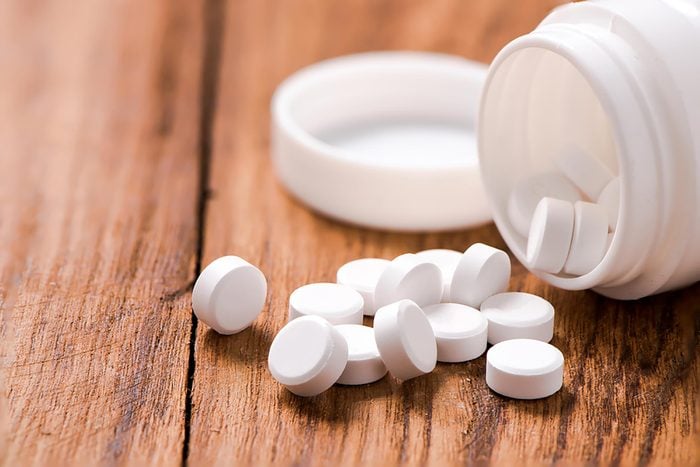
Take an aspirin
Besides offering pain relief for the sores, a small study shows that 125 milligrams of aspirin a day could reduce the number of days of active infection by 50 percent. A regular aspirin regimen sounds healthy, but know that aspirin may be dangerous for people with certain conditions and in certain situations because it can thin the blood and affect the gastrointestinal tract. Check with your doctor before and read up on when aspirin won’t work—and when it could be dangerous.
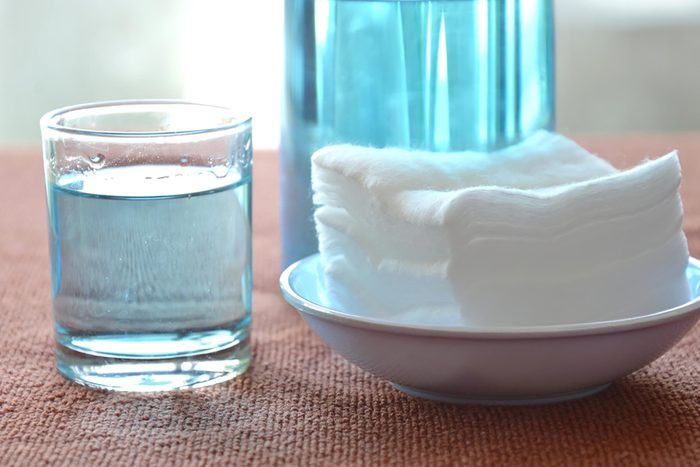
Treat with hydrogen peroxide
An open blister on your face is vulnerable to infection with other organisms, like bacteria, especially if you touch it often. Frequently disinfect the sore with hydrogen peroxide to prevent bacterial infection and dry out the sore. The cleaner the sore is, the more likely it will heal quickly without spreading or worsening. Keeping a bottle of hydrogen peroxide in the home is also great because of these little-known peroxide uses.
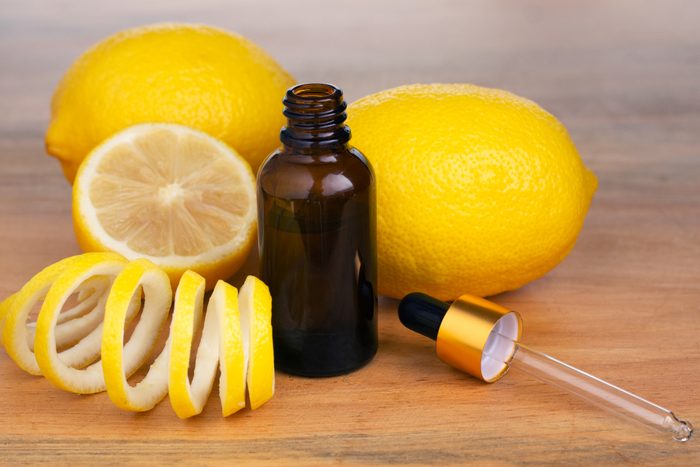
Apply lemon balm essential oil
You already know that lemons can clean almost everything in your house. Now, a review study suggests that lemon balm essential oil may kill the herpes virus in laboratory dishes. Since cold sores are caused by a herpes virus, this may be an effective cold sore remedy, per the Journal of Evidence-Based Complementary & Alternative Medicine. Plus, older research published in Phytomedicine shows that the antiviral properties in lemon may reduce swelling and blister redness, too. As you feel the tingle of a cold sore forming, apply a drop or two of lemon balm essential oil to the area, then hold an ice cube on top of the area for 10 minutes. After icing, spread a thin layer of petroleum jelly to protect the sore and prevent it from cracking. Repeat this process several times a day. Note: Sometimes if you react quickly enough, a cold sore won’t emerge or its severity can be greatly reduced.
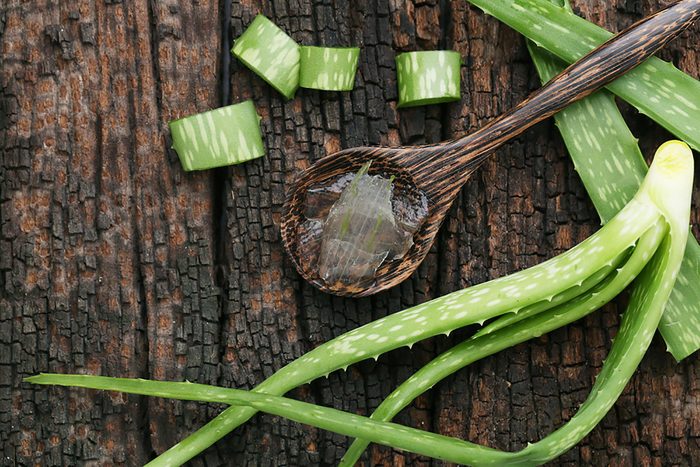
Dab on some aloe
Swab the cold sore with pure aloe vera gel three to four times a day. The cool gel not only soothes the pain and discomfort from a cold sore, but limited research shows it could have anti-inflammatory and antiviral effects, too. Aloe will soothe your sensitive, blistered skin and help protect it from bacteria, which is why it’s also a potential remedy for eczema and psoriasis relief, as well.
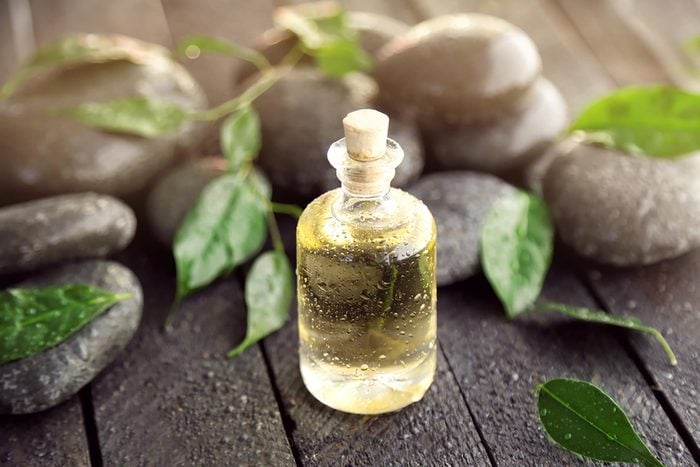
Apply tea tree oil
Tea tree oil is anti-fungal, antiseptic, and antimicrobial, and may help heal your cold sore. Although research is limited, some studies suggest the oil may help reduce inflammation and have an anti-viral effect on both types of the herpes simplex virus. Other research in the Journal of Antimicrobial Chemotherapy also shows it might be a helpful treatment because it dries out the cold sore, much like witch hazel, rubbing alcohol, pure vanilla extract, and other alcohol-based astringents. However, this doesn’t heal the sore—it only dries it out. Make sure to dilute the oil according to the instructions before applying it to the cold sore. Check out these other ways tea tree oil may improve your skin.
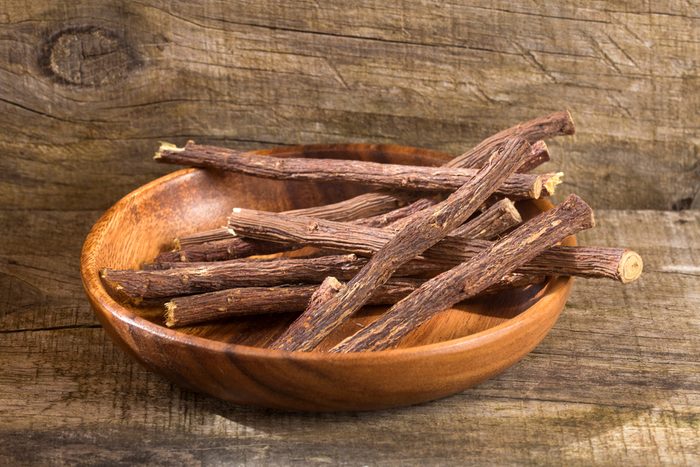
Make a licorice root paste
Licorice contains anti-inflammatory and anti-viral properties, and an acid found in licorice root has been shown in studies to counteract symptoms and stop the cold sore virus from spreading. Some research has suggested that it can also be an effective remedy for canker sores—a non-contagious sore that forms on the inside of the mouth and isn’t caused by HSV-1. (Here are some more canker sore remedies you can find at home.)
For a cold sore, applying licorice powder or licorice extract topically may work best. Mix 1 tablespoon of licorice root powder with 1 teaspoon of petroleum jelly, and leave the cream on the sore for several hours or overnight.
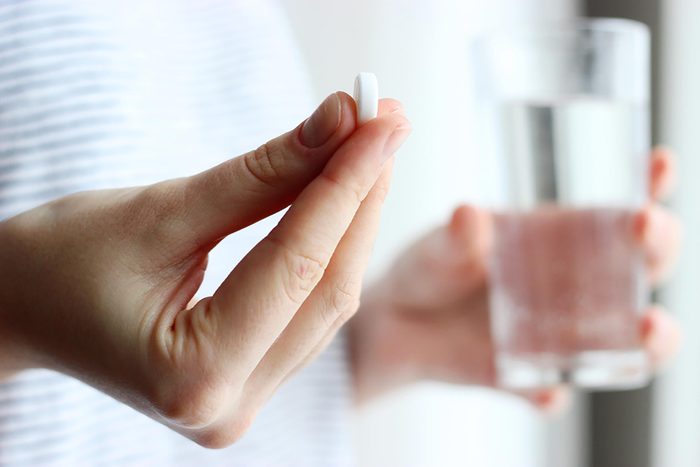
Consider lysine supplements
This amino acid is one of the classic cold sore remedies; older research in Dermatologica and Alternative Medicine Review suggests it may shorten the time it takes to heal and potentially reduce the number of occurrences. In theory, it interferes with the absorption of arginine, an amino acid suspected of being necessary for the herpes virus to replicate. The authors of a 2017 review found that there wasn’t enough evidence in the studies they looked at to support the use of lysine supplements for the prevention or treatment of cold sores. They concluded that more research was needed, and patients with cardiovascular or gallbladder disease should be warned about the potential risks of the supplements. Talk with your doctor if you are thinking about taking a lysine supplement to treat or prevent cold sores, especially if you are pregnant. You can also consider upping your intake of poultry, eggs, dairy, and turkey, all of which are natural sources of lysine, or talk to your doctor about using a lysine-containing ointment.
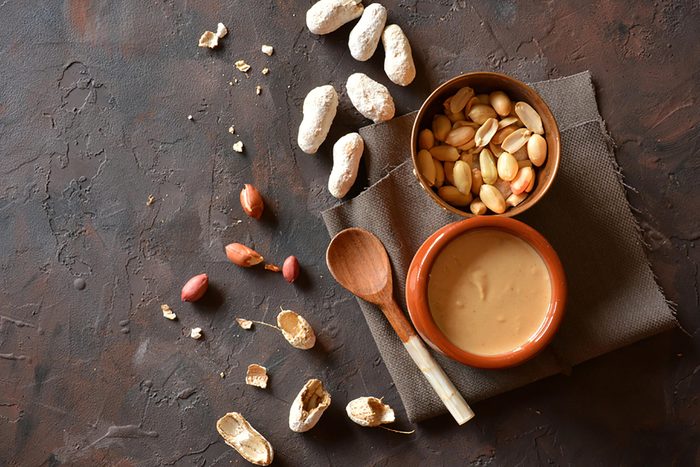
Avoid foods with an unfavorable arginine-to-lysine ratio
There is some evidence in the Journal of Virology and Chemotherapy suggesting high levels of arginine may make cold sore outbreaks worse because the virus needs arginine to multiply or replicate. If you feel a cold sore developing, you might temporarily stop eating foods with an unfavorable lysine-to-arginine ratio, which can include peanuts, almonds, seeds, cereal grains, gelatin, and raisins.
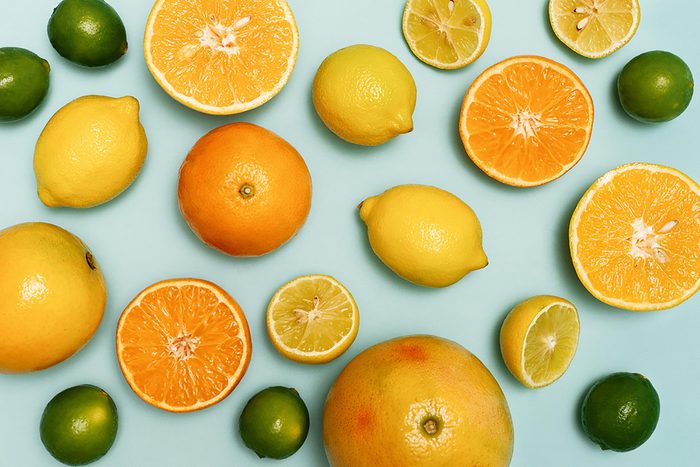
Eat to boost your immune system
Cold sores often occur when your immune system is weakened, according to Cedars-Sinai. To keep it strong, eat foods rich in vitamin C and zinc, both of which possess antioxidant powers. Berries, kiwis, citrus fruits, and melons are all high in vitamin C, and beans, poultry, shellfish, and whole grains are good sources of zinc. In addition to diet changes, your exercise and even your attitude may impact your immune system. So you may want to consider trying these simple habits to naturally boost your immune system.
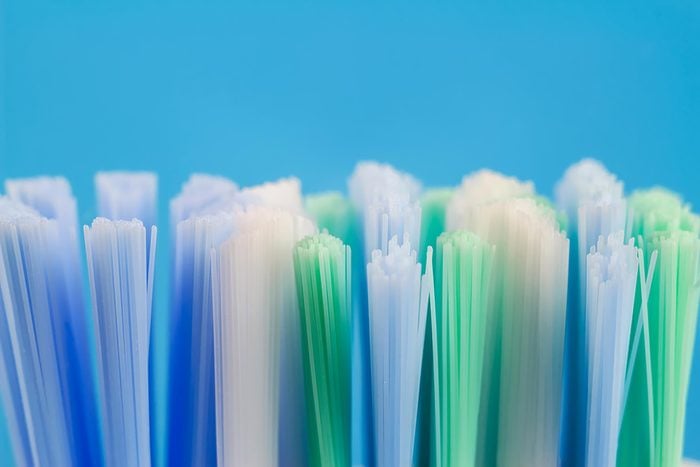
Toss your toothbrush
Cold sore viruses are contagious and easily spread. Avoid worsening an outbreak and accidentally causing another by throwing out your toothbrush right when the blister forms and again after it has cleared. Also throw away any other products that might have come into contact with the sore, especially lip balm or lipstick.
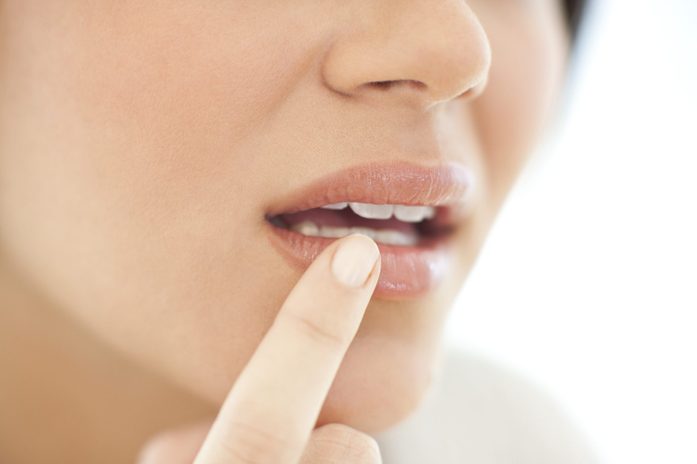
Stop touching it
Resist the urge to pick at or touch a sore, even after it has crusted over. Your hands can introduce bacteria to the sore, preventing it from healing. Cold sores are also very contagious, and touching one can spread the virus to your eyes or genitals. Always wash your hands immediately after you touch the sore when applying any medicinal remedies. Throw away any cotton swabs or tissues you use to apply medicine, too. Also try to avoid touching or kissing people with weaker immune systems, like babies, who can be at greater risk from HSV-1 infections. (Don’t underestimate the power of soap and water—these things can happen when you don’t wash your hands.)

Know what triggers an outbreak
Cold sores are an outbreak of the herpes simplex virus and learning what most often triggers your outbreak can help reduce how long they last and how severe they are. Common triggers include emotional stress, exhaustion, a weakened immune system (sometimes caused by medications), infections, hormonal changes, and exposure to ultra-violet radiation (ie, too much sun exposure).